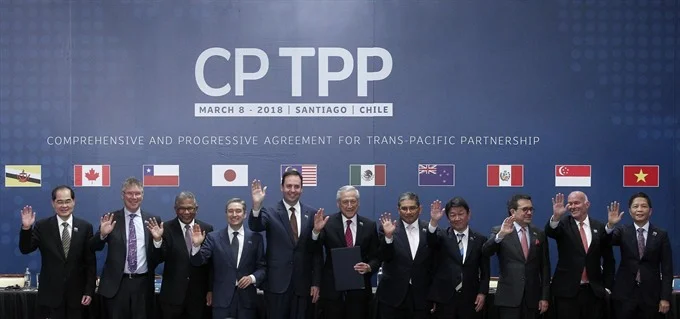On January 23, 2017, President Donald Trump signed an executive order which withdrew U.S. participation from the Trans-Pacific Partnership, or the TPP. One year after the withdrawal, what have been the regional trade ramifications?
Read MoreHillary Clinton’s presidential candidacy was monumental. The potential of having a woman as President of the United States was shocking and revolutionary for many Americans. However, perhaps one of her most compelling qualities was what held her back: her gender.
With corporate profits and income inequality as historic heights, co-determination offers Americans a path to shared prosperity.
Read MoreThe Supplemental Nutrition Assistance Program (SNAP), formerly known as food stamps, is designed to aid America’s poorest citizens by providing a stipend to support the cost of food and beverages. The program has come under criticism in the past few decades due to the high proportion of unhealthy and processed items that are often purchased using SNAP funds. In recent years, the USDA has worked with thousands of farmers markets across the country to provide incentives for SNAP recipients to buy fresh produce with their federal dollars. While this is a step in the right direction, there are limitations to this approach that necessitate further action by the USDA in order to prioritize nutrition in SNAP and thwart the rising obesity epidemic.
Read MoreAs a whole, the quality of infrastructure in the United States is dismal. However, while politicians and the public are rightfully concerned with the quality of our roads and highways, there is a lack of thought towards the quality of mass transit systems.
Read MoreWhat can we learn from Steve Bannon’s swift exile from the Trump administration and Breitbart? He has revealed the failures of the Trump campaign through his own controversial tenure filled with extremism, political battles, and controlling the agenda. Will this exit be the last of Steve Bannon?
Read MoreSince the turn of the century, China has become one of the top global donors to international development. Many Western states and institutions view China as a ‘rogue donor’ due to their lack of transparency, but they continue to play an increasingly important role in the international aid architecture.
Read MoreSince the Great Depression, Americans have really only known two political parties. As those two parties’ approval ratings reach record low numbers, now is the time to begin exploring multi-party system alternatives.
Read MoreThe “Doomsday Clock” has moved closer to midnight and nuclear tensions are high, but Americans have a unique capacity to deal with nuclear anxiety.
Read MoreAs tensions between the United States, North Korea, and South Korea rise, adhering to diplomatic courses of action becomes increasingly essential, despite the assertions of proponents of hard power.
Read MoreOccasionally, North Korea is handed an opportunity to smile for the cameras and look innocent. The Pyeongchang Olympics was one of them.
Read MoreThe myth of American Exceptionalism and how it detrimentally affects the LGBTQ+ rights movements around the globe.
Read MoreThe current structure of academic research that demands many more students that leaders is unsustainable, leaving thousands of would-be academics unemployed in their profession - or just plain unemployed.
Read MoreA crash course on how localities can be on the forefront of environmental conservation and sustainable development.
Read MoreOnly ten years ago, the Commonwealth of Virginia experienced an economic boom that saved most Virginians from the worst of the Great Recession. During Virginia’s 2017 Gubernatorial election, however, addressing the economy was a topic of intense debate. Serious underlying problems have come into the public view, and hard decisions are coming for Virginian policymakers.
Read MoreIn light of recent events in Cataluña, Spain and their claims for secession and independence from the rest of the country, as well as Britain’s very recent exit from the European Union, people remain utterly perplexed in regards to the logistics and complexity of the process of “breaking away.” Is there a “right” way to make the case for separation, a correct and legitimate way of going about initiating independence?
Read MoreAs an American student studying abroad in Denmark, I have observed and experienced stark differences between the American and Danish healthcare systems, most notably the fact that Denmark provides universal healthcare for its citizens. There are elements of the Danish system that could be implemented in the United States to increase the access and quality of U.S. care, particularly the Danish primary care model.
Read MoreThe Parkland students stand out for their direct confrontation of the gun-rights debate, in an age where directness and politics have become antithetical.
Read MoreLast week, the United Nations convened its 62nd Session on the Status of Women with the theme, “Challenges and opportunities in achieving gender equality and the empowerment of rural women and girls.” But perhaps what many of those rural women and girls across the 193 member states of the U.N. really need is protection from the U.N. peacekeepers sent to help them.
Read MoreThe issue of immigration reform has been a staple in Congressional debate since Trump took office. However, the GOP focus on immigration as a tool to stimulate the US economy through the prioritization of “highly-skilled workers,” while outwardly neutral, may become racially discriminatory and harmful to the US labor force in practice.
Read More



















